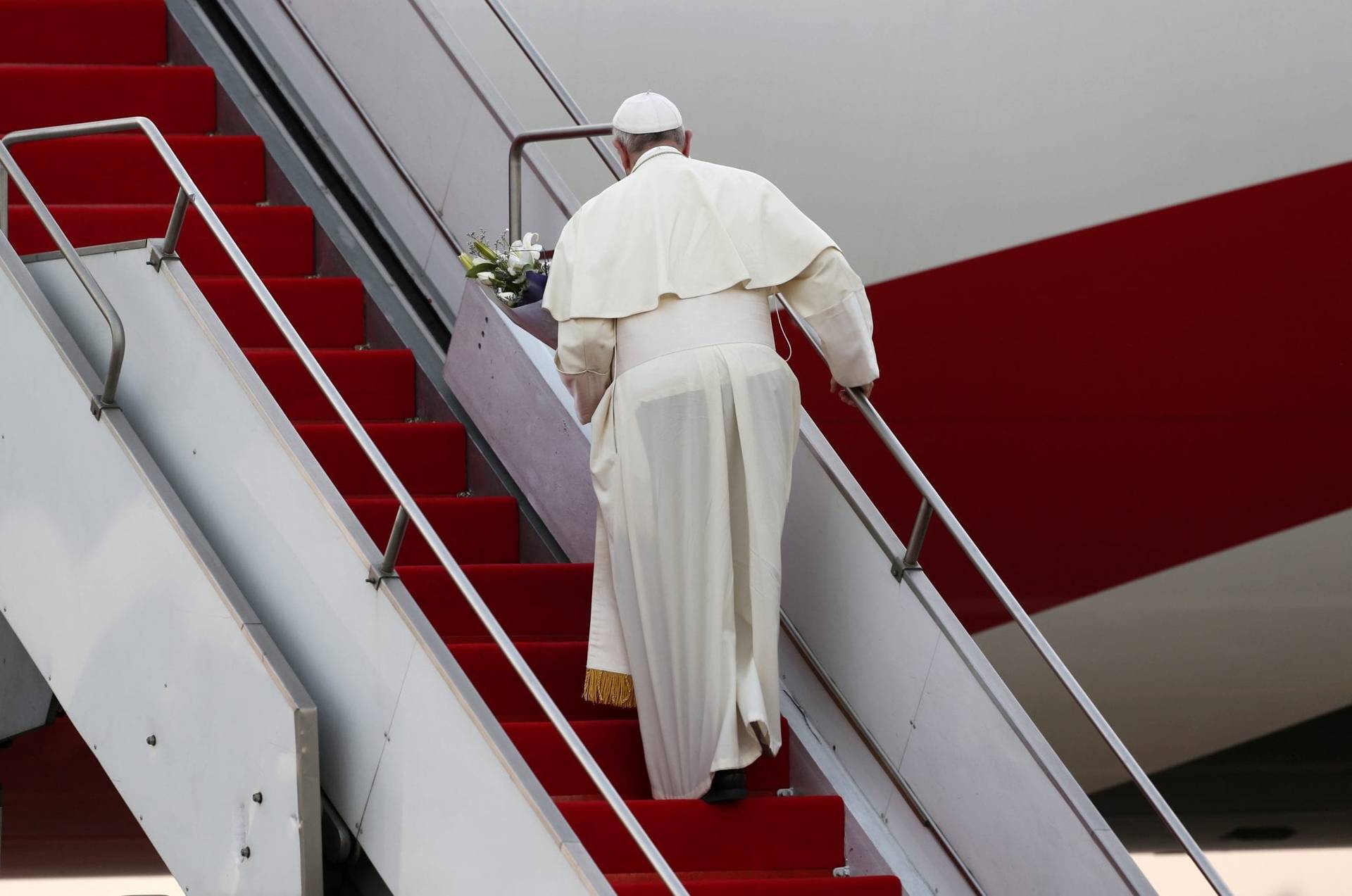FATIMA, Portugal – Four generations of a Muslim family of Palestine refugees Pope Francis first met during a Holy Thursday Mass on the outskirts in Rome back in 2016, will see him again during his May 12-13 visit to Fatima.
After spending most of their lives fleeing from war, family members have finally found refuge in Portugal, where the town of Batalha, just two miles away from Fatima, gave them asylum, fulfilling a commitment made by European mayors who attended a conference in the Vatican to address the refugee crisis.
The four generations of this refugee family, which began with the eldest woman abandoning Palestine in the 1950s, spoke with the press from the impressive altar where Francis will say Mass on Saturday.
Two of the youngest members of the family, children of Duraed and Tahani, are aged eight and ten. As their parents were being interviewed, they played on the steps found in the altar area, oblivious to the attention their family was getting. A third, a five month old baby, slept peacefully in a stroller.
On Friday afternoon, the plan – and dream – was for the family of ten to meet with Francis again before the Mass he’s celebrating on Saturday, in the house adjacent to the Fatima shrine where he’s staying for the duration of the trip.
Francis met them for the first time in Rome. Upon hearing their story, the pontiff wanted to meet with them alone, and they did, in one of the rooms of the refugee welcoming center in Castenuovo di Port.
The first to flee was Amina, today the grandmother of the clan. With her husband, she fled Palestine in 1954. From there, they went to Iraq, where their children were born. But once again, in the early 2000s, war forced them to relocate, this time to Syria.
From there, they went to Libya in 2012, hoping to eventually cross the sea to Europe, which they eventually did, in 2015: They traveled in one of the hundreds of rubber boats that reach the coast of Lampedusa every year.
Despite the hardships of that trip, which included the deeply rooted fear produced by floating adrift at sea with your entire family, none of whom knows how to swim, they were among the fortunate ones. They lived to tell their stories.
Paulo Santos, the mayor of Batalha, told reporters that the town had decided to welcome this family, and a few other refugees, because the world was going through a humanitarian crisis and Europe seemed frozen with inaction.
The town became the second in Portugal to subscribe to the European relocation program, which aims to help the countries that welcome the bulge of the refugees find a permanent home for those fleeing war, persecution, violence or extreme poverty.
Today, the families welcomed by the city have been integrated, with those of working age having employment, and the children going to school.
Santos acknowledged that at the beginning, it wasn’t easy to convince the community to welcome the refugees, because there was a social media-fueled fear of refugees being synonymous with terrorists. But because the refugees represent the different parts of society, from teachers to doctors, volunteers and the Church, the perception rapidly changed.















